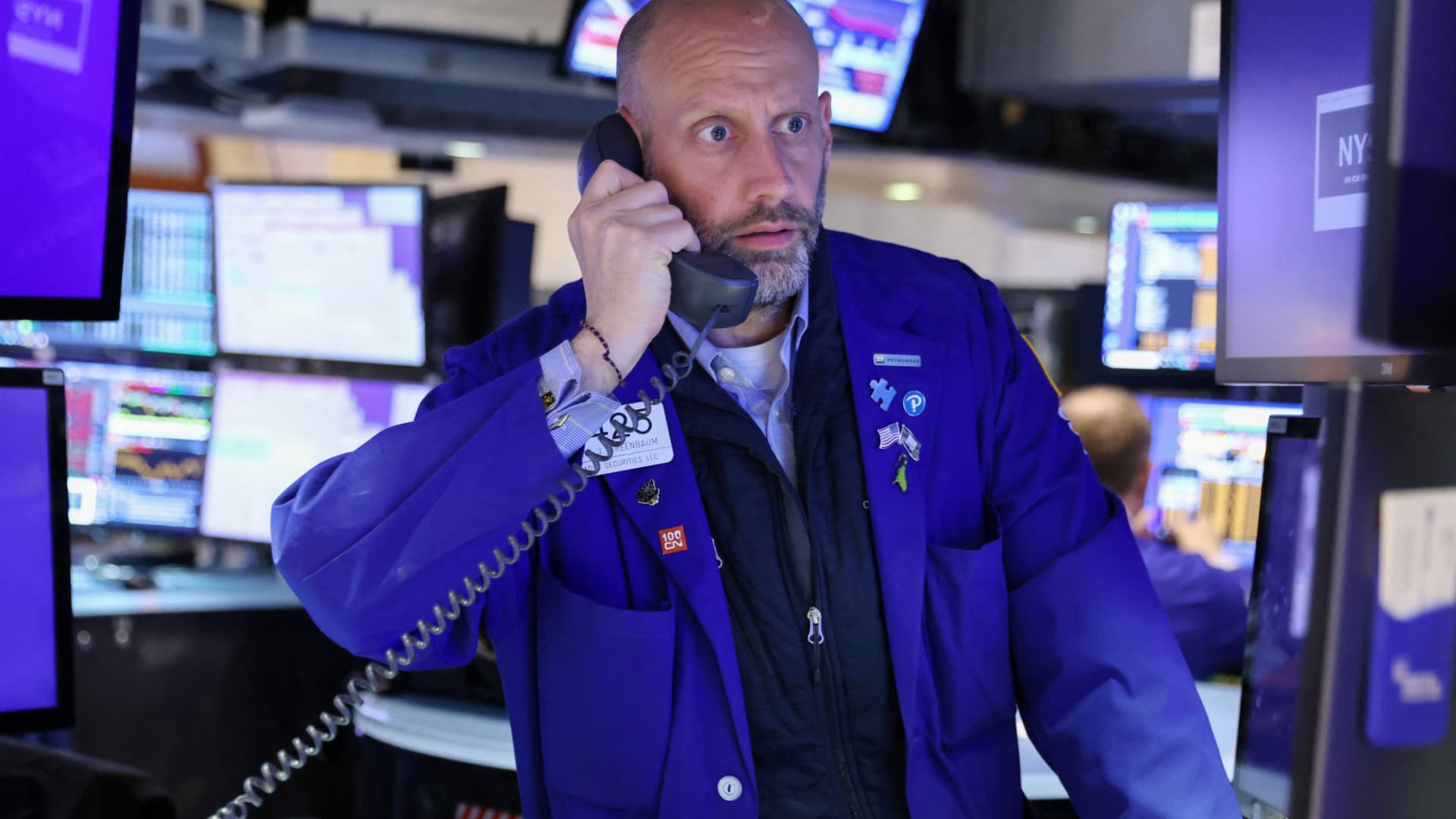
Stock futures were lower in early morning trading Friday after the Dow Jones Industrial Average posted its worst day since 2020.
Futures on the Dow Jones Industrial Average were down 153 points, or 0.5%. S&P 500 futures traded 0.7% lower, and Nasdaq 100 futures fell nearly 1%.
The moves came after stocks sold off sharply on Thursday’s. The Dow lost more than 1,000 points, and the tech-heavy Nasdaq Composite fell nearly 5%. Both indexes notched their worst single-day drops since 2020. The S&P 500 fell 3.56%, its second-worst day of the year.
Thursday’s losses erased Wednesday’s big post-Federal Reserve meeting rally. Fed Chair Jerome Powell ruled out the prospect of larger rate hikes on Wednesday, sending the S&P 500 and the Dow to their best daily gains since 2020.
“The widely anticipated relief rally seen in equities and bonds post the ‘less hawkish than feared’ Fed on Wednesday was short lived,” Barclays strategist Emmanuel Cau said in a note to clients. “Although aggressive 75bp hikes going forward may be off the table, the implied policy tightening cycle ahead is still very hawkish, in our view. Unless surging inflation quickly reverses its course (watch US CPI print next Wednesday), central banks may have no other choice than slowing growth to slow inflation and stay credible.”
Technology stocks bore the brunt of Thursday’s fall, with cloud companies, e-retailers and mega-cap names seeing steep declines.
Despite Thursday’s wipeout, the S&P 500 is on pace to close the week up 0.4%. The Dow is on track to finish the week marginally higher, while the Nasdaq Composite is lower by 0.1% this week so far.
Investors are looking ahead to the April jobs report, set for release Friday morning. Economists surveyed by Dow Jones expect employers added 400,000 jobs to nonfarm payrolls, down slightly from 431,000 in March. The unemployment rate is expected to fall to 3.5% in April, down from 3.6% in March, according to Dow Jones.
Outside of the number of jobs added, investors will also be looking at wage growth and labor force participation for hints about how the jobs market is impacting inflation.
“The participation rate will be important. If we are to get a soft landing, we are going to have to see a recovery in participation at a pretty rapid clip,” said Luke Bartholomew, senior economist at Abrdn.
On the earnings front, shares of Under Armour dropped more than 15% in premarket trading after the apparel company missed estimates on the top and bottom lines. Live Nation Entertainment fell 4% after revenue came in softer than expected for the first quarter.
DoorDash and Block, however, were moving higher despite missing key estimates in their reports.
— CNBC’s Michael Bloom contributed to this report.